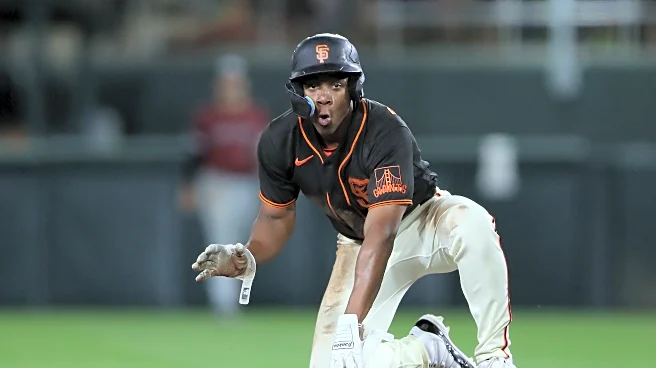Rapid Read • 8 min read
Fox News has criticized President Trump for not taking questions during a joint press conference with Russian President Vladimir Putin following their summit in Alaska. The network's senior White House correspondent, Jacqui Heinrich, expressed surprise at the lack of interaction with reporters, noting that both leaders ignored questions. The summit, which was expected to set the stage for a second meeting, concluded without any details on progress made. Heinrich described the event as unusual, highlighting Putin's decision to speak first in Russian, despite the U.S. being the host country. The press conference ended with both leaders leaving without addressing the media.
AD
The absence of a question-and-answer session at the press conference raises concerns about transparency and accountability in diplomatic engagements. Such interactions are crucial for the media to clarify the outcomes of high-level meetings, especially when involving contentious figures like Putin, who is accused of war crimes. The lack of details on the summit's achievements may lead to speculation and uncertainty regarding U.S.-Russia relations. This development could impact public perception of President Trump's diplomatic strategies and his administration's handling of international affairs.
The White House has not provided an explanation for the decision to forgo questions, leaving the media and public awaiting further information. The situation may prompt calls for more transparency in future diplomatic engagements. Stakeholders, including political leaders and analysts, will likely scrutinize the implications of the summit and its impact on U.S.-Russia relations. The media may continue to press for answers, potentially influencing the administration's approach to future press conferences.
The unusual format of the press conference may reflect broader diplomatic strategies or tensions between the U.S. and Russia. The decision to avoid questions could be seen as an attempt to control the narrative or prevent uncomfortable inquiries. This approach may have long-term implications for how the U.S. conducts diplomacy and engages with the media, potentially affecting public trust in government communications.
AD
More Stories You Might Enjoy












